Benin: Church planters seek to reach the unreached - Mission Network News
Mission Network News
Benin (MNN) -- unfoldingWord helps partners in six locations undertake ‘Whole Bible, Whole Nation’ translation projects.

Mission Network News
Benin (MNN) -- unfoldingWord helps partners in six locations undertake ‘Whole Bible, Whole Nation’ translation projects.


Prensa Latina
UN News
Unprecedented floods and winds have displaced thousands of families, destroyed homes, and severely damaged critical infrastructure, impacting over half a million people in Yemen, the UN migration agency (IOM) said on Thursday.

ACN Staff-Church in Need
Sources in Burkina Faso say that Islamic terrorists killed 26 people in a church, many of them Christian. This is part of an alarming trend.

94,783 households affected, 73,582 houses collapsed, say authorities - Anadolu Ajansı

Azernews.Az
The Bolivian government has declared a state of emergency across the country in response to widespread forest fires, Azernews reports.

APA-Niamey (Niger)-APAnews - African Press Agency
After more than two hundred deaths and more than 350,000 affected by floods, the government of Niamey has released 12 billion CFA francs to respond to the disaster. "Niger has recorded particularly abundant rainfall this year, which has unfortunately caused loss of life and significant material d

AFP - Agence France Presse
Gerard walks despondently around his small pharmacy in the centre of Burundi's main city Bujumbura, surveying the many empty shelves.

Henry Shuldiner-InSight Crime
As Kenyan police work to support Haiti's embattled police force, concerns about their ability to thwart the country’s street gangs rise.

Carla Gloria Colomé-EL PAÍS English
The results revealed that 72% of those surveyed consider the food crisis the main problem, and that seven out of 10 Cubans have stopped eating breakfast, lunch, or dinner due to lack of money or shortages

Nation
The officers engaged members of 400 Mawazo Gang in running battles on Saturday night.

AfricaNews-Africanews
Ruto said he made the move after listening to the people and that he would form a broad-based government after consultations

Business Daily
The crux of Moodyâs decision lies in the anticipated reduction of tax revenues, which could impair Kenyaâs ability to service its debt.

YouTube
In the wake of an apparent failed coup attempt, Bolivians are getting back to normality and that, for many, is economic hardship fueled by a longtime over-de...

Peter McHugh-Washington Examiner - Political News and Conservative Analysis About Congress, the President, and the Federal Government
Violent gangs run Haiti as its government lies in shambles. Recently, foreign police have arrived to quell the chaos, but thousands still remain without a home.

Institute for the Study of War
Monitor
Dr Chris Mukiza, the executive director of Uganda Bureau of Statistics (Ubos), released the preliminary results in Kampala yesterday

YouTube
Haiti's gangs say they are gearing up for war as hundreds of police officers from Kenya prepare to deploy in upcoming days. Anticipation is mingling with fea...

Vania André-The Haitian Times
Celebrate Caribbean Heritage Month by exploring these six fascinating facts about Haiti and its vibrant culture and history.

University World News
How can desert encroachment be halted? Algeria is having trouble finding the answer, and researchers from all sectors are being called to the rescue t...

UN News
The cultivation of sisal plants by some of the most vulnerable communities in southern Madagascar is helping to tackle desertification and allow people to stay on their land, thanks to a project by the UN Development Programme.The seasonal Tiomena wind, a fiercely strong wind that blows over the coastline, has driven sandy soils across productive farmland forcing many people to give up their subsistence farming activities.But the planting of sisal has helped to reverse the trend as Daniel Dickinson reports for the Lid is On Podcast from southern Madagascar.

“Fifteen kilometers was the travel distance to a neighboring village to fetch water. During the dry season, we would have to travel 30 kilometers. Women and children spent most of their day in search of water. This was our daily struggle to get drinking water,” says Adoum Alhousseini, Chief of the pastoral village of Tagaza, in the commune of Tchirozérine, 120 kilometers north of the city of Agadez in Niger.

YouTube
Senegal's new President Bassirou Diomaye Faye is on his first visit to Mali and Burkina Faso. Heâs hoping to strengthen ties with the two states, both of whi...

YouTube
The United Nations says that more than three million people have been forced to flee their homes this year in central Sahel countries like Burkina Faso, Mali...

AfricaNews-Africanews
The UN Refugee Agency has warned in a new report that conflicts in Sudan and across the Sahel region have compromised protection for migrants crossing from sub-Saharan Africa.

Al Jazeera
Drug seizures, mainly of cocaine and cannabis resin, have soared in the region, according to a UN report.

ReliefWeb
Humanitarian situation reports, response plans, news, analyses, evaluations, assessments, maps, infographics and more on Kenya: Floods - Apr 2024

The East African
Zambia's Agriculture minister said the restriction will only be lifted after a careful assessment of the next harvest.

Diggers Editor-Zambia: News Diggers!
AS Zambia grapples with an unexpected dry spell during what should be the rainy season, the situation has become more than just a weather anomaly - it's a pressing humanitarian concern. For about a month now, the absence of rain has brought scorching temperatures, causing crops to wither and raising

The Telegraph
Lillian Lungu’s husband died alone of cholera – and she wasn’t told until 11 days later
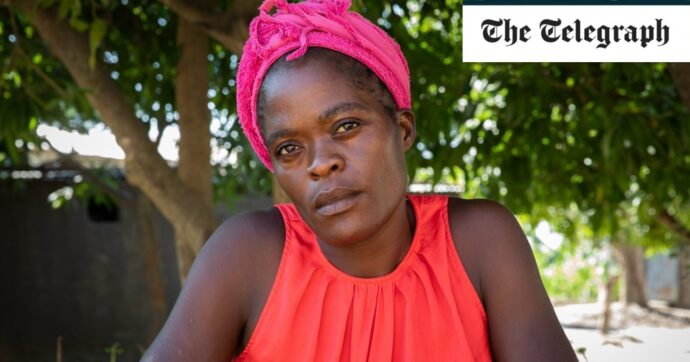
TGC Africa
Zambian police report that a 19-year-old girl beat her 26-year-old husband to death, completely overlooking that this is yet another case of child marriage
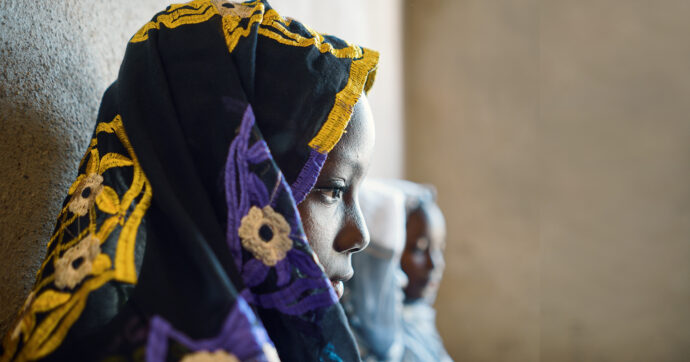
WPR
Niger, Mali and Burkina Faso have severed ties from a key West African bloc. Four things you need to know about what the break means for a region destabilized by coups and rising jihadist violence.

POLYGRAPH.info
Thousands of Ugandans die of hunger every day because of food shortages and the effects of climate change that deprive farmers of harvest and income.

The Agenda Online Newspaper - Breaking News in Nigeria Today, Politics, Business, Sports, Features, informed Analysis and Opinions.
Nigeria is grappling with persistent and soaring inflation rates, causing distress among its citizens. President Bola Ahmed Tinubu's six-month reign has been marked by hardships, Naira depreciation, and escalating insecurity, pushing the nation to a critical point. In December, the inflation rate reached 28.92%, the highest in 27 years, up from 28.20% in November, as

Adriaan Alsema-Colombia News | Colombia Reports
At least 233 children under five years old died of starvation in Colombia in 2023, according to the country’s Ombudsman’s Office. Ombudsman Carlos Camargo raised the alarm based on statistics…
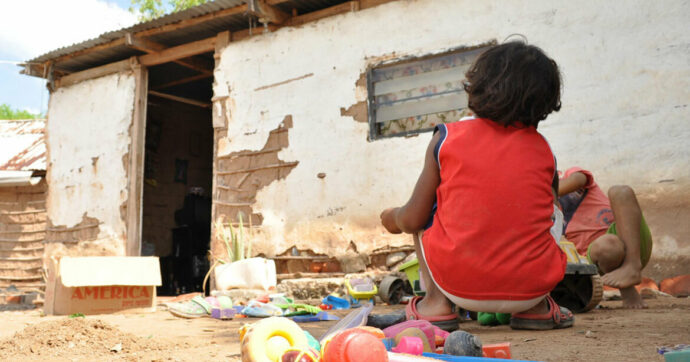
ReliefWeb
News and Press Release in English on Niger about Agriculture, Food and Nutrition and more; published on 15 Jan 2024 by NRC

AfricaNews-Africanews
"I've told them that they cannot participate in burials, and I also told them that they cannot have funerals at their homes. I also told the general public not to attend funerals anymore. To avoid those funerals, especially if someone has died from cholera because they are risking their lives..."

Patricia R. Blanco (TEXT), Manuel Seoane (PHOTOS)-EL PAÃS English
Seven departments in the country have already declared an emergency due to the lack of water. If the drought continues, cities like La Paz and El Alto will be left without water, while the inhabitants of rural areas will be forced to migrate to large cities

ReliefWeb
News and Press Release in English on Niger about Health and Epidemic; published on 24 Nov 2023 by WHO
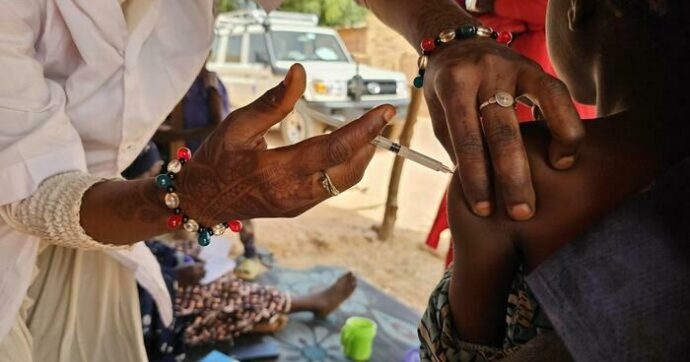
ReliefWeb
Analysis in English on World and 6 other countries about Peacekeeping and Peacebuilding and Protection and Human Rights; published on 28 Jun 2023 by IEP

Arab News
Water should be considered a fundamental human right, to which all human beings are entitled, regardless of their background, ethnicity, nationality, religion or race. But consider yourself fortunate if you do have access to clean water around the clock, because it is alarming to see that one in four people globally still do not have access to safe drinking water, while 1.6 billion people lack access to basic sanitation. One of the regions that has the highest percentage of people that lack access to safely managed drinking water is sub-Saharan Africa.

AFP - Agence France Presse
Around 40,000 people have been forced out of their homes since mid-August by violence in Haiti, the UN's food agency said Monday, following a rise in crime in the impoverished Caribbean nation.

The Economist
There will be no sudden silencing of the guns in 2024. Instead, the violence in Burkina Faso, Mali, Niger, Sudan, Ethiopia and Somalia is likely to intensify

BBC News
The holiday has been set aside to allow all Kenyans to participate, the environment minister says.


Miguel Arriaza-EL PAÃS English
The countryâs agricultural production is dropping and over half the population faces food insecurity, warns Save the Children

Mongabay Environmental News
On a fateful day in 2019 that is etched into the memories of local residents, the tranquility along Kenya’s Lake Victoria shores was shattered by an overwhelming surge of water. The unsuspecting communities were caught off guard, forced to flee for their lives, desperately grasping onto whatever belongings they could salvage. In the chaos and […]

BioMed Central
Background Tens of millions of children lack adequate care, many having been separated from or lost one or both parents. Despite the problem’s severity and its impact on a child’s lifelong health and wellbeing, the care of vulnerable children—which includes strengthening the care of children within families, preventing unnecessary family separation, and ensuring quality care alternatives when reunification with the biological parents is not possible or appropriate—is a low global priority. This analysis investigates factors shaping the inadequate global prioritization of the care of vulnerable children. Specifically, the analysis focuses on factors internal to the global policy community addressing children’s care, including how they understand, govern, and communicate the problem. Methods Drawing on agenda setting scholarship, we triangulated among several sources of data, including 32 interviews with experts, as well as documents including peer-reviewed literature and organizational reports. We undertook a thematic analysis of the data, using these to create a historical narrative on efforts to address children’s care, and specifically childcare reform. Results Divisive disagreements on the definition and legitimacy of deinstitutionalization—a care reform strategy that replaces institution-based care with family-based care—may be hindering priority for children’s care. Multiple factors have shaped these disagreements: a contradictory evidence base on the scope of the problem and solutions, divergent experiences between former Soviet bloc and other countries, socio-cultural and legal challenges in introducing formal alternative care arrangements, commercial interests that perpetuate support for residential facilities, as well as the sometimes conflicting views of impacted children, families, and the disability community. These disagreements have led to considerable governance and positioning difficulties, which have complicated efforts to coordinate initiatives, precluded the emergence of leadership that proponents universally trust, hampered the engagement of potential allies, and challenged efforts to secure funding and convince policymakers to act. Conclusion In order to potentially become a more potent force for advancing global priority, children’s care proponents within international organizations, donor agencies, and non-governmental agencies working across countries will need to better manage their disagreements around deinstitutionalization as a care reform strategy.

ReliefWeb
Situation Report in English on Bolivia (Plurinational State of) about Agriculture, Disaster Management, Drought, Heat Wave and more; published on 10 Oct 2023 by IFRC

VOA
Move is in response to a recent report that said situation is expected to worsen until the next harvesting season in March 2024

Gulf Times
Under a scorching sun, more than 300 Bolivians marched on Friday to a dusty plain near the Incachaca dam that overlooks the city of La Paz, gathering to pray for rain and an end to...

The Borgen Project-BORGEN
Smart Tap promises to play a major part in making their lives easier. By providing large amounts of accessible and cheap clean water in Kenya.

Punch Editorial Board-Punch Newspapers
A new World Bank report revealing that over 40 million Nigerian children live in extreme poverty, underscores how deep the country has slid into the poverty hole.
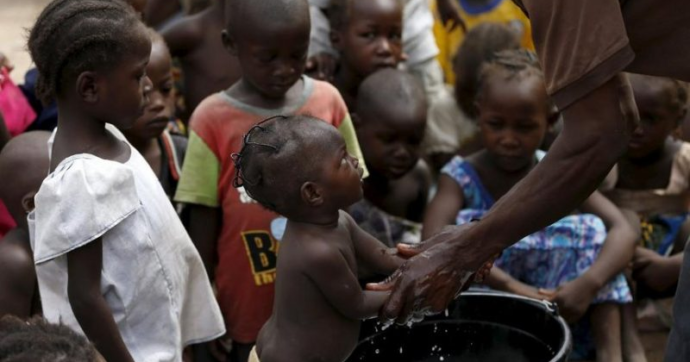
ReliefWeb
News and Press Release in English on Burkina Faso about Agriculture, Food and Nutrition, Drought and more; published on 3 Oct 2023 by ICRC

The Borgen Project-BORGEN
Hope for Haiti is a non-profit organization dedicated to reducing poverty in Haiti and improving the quality of life for the Haitian people.
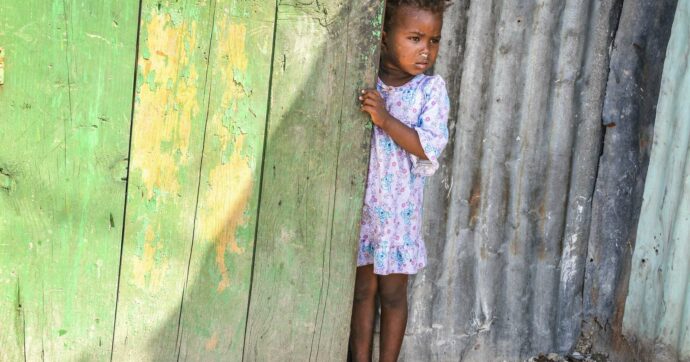
African Arguments
ReliefWeb
News and Press Release in English on Bolivia (Plurinational State of) about Agriculture, Food and Nutrition, Drought and Heat Wave; published on 3 Oct 2023 by Save the Children

Reuters
The United Nations Security Council on Monday authorized a foreign security mission to Haiti, a year after the Caribbean country asked for help to fight violent gangs that have largely overrun its capital Port-au-Prince.
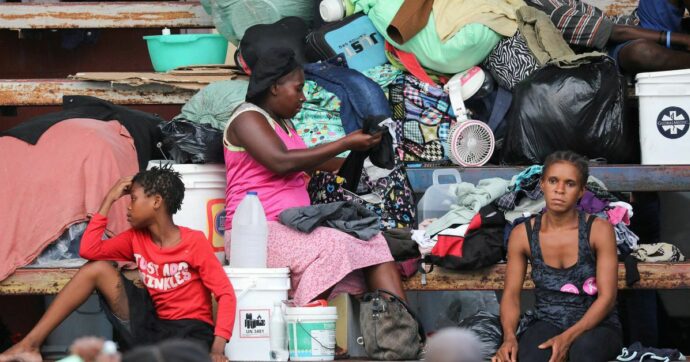
Monitor
Naro wants government to establish a fully-functional seed system for the crops that are dominantly grown in northern Uganda

Zambia National Farmers Union (ZNFU) wants to improve agricultural yields for farmers and puts special emphasis on leveraging technology. Therefore, it organised an agricultural exhibition.

Facundo Iglesia-Buenos Aires Herald
Agustín Salvia, the country’s leading expert in poverty, reveals what lies beneath the latest stats
